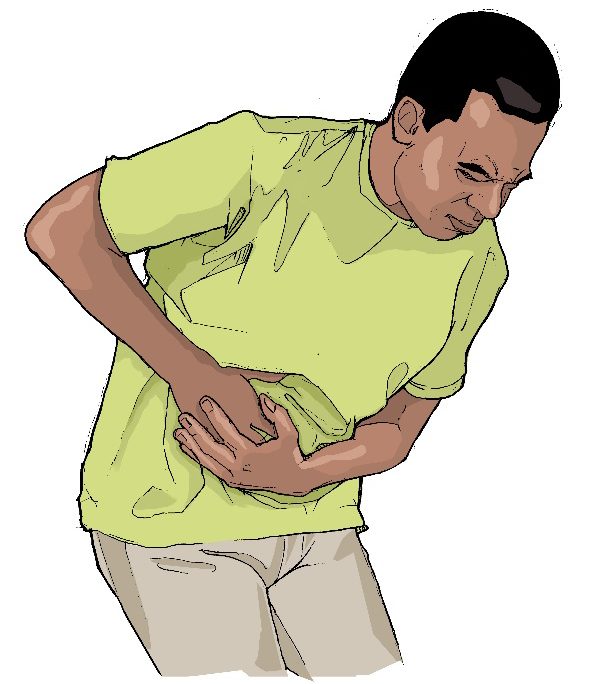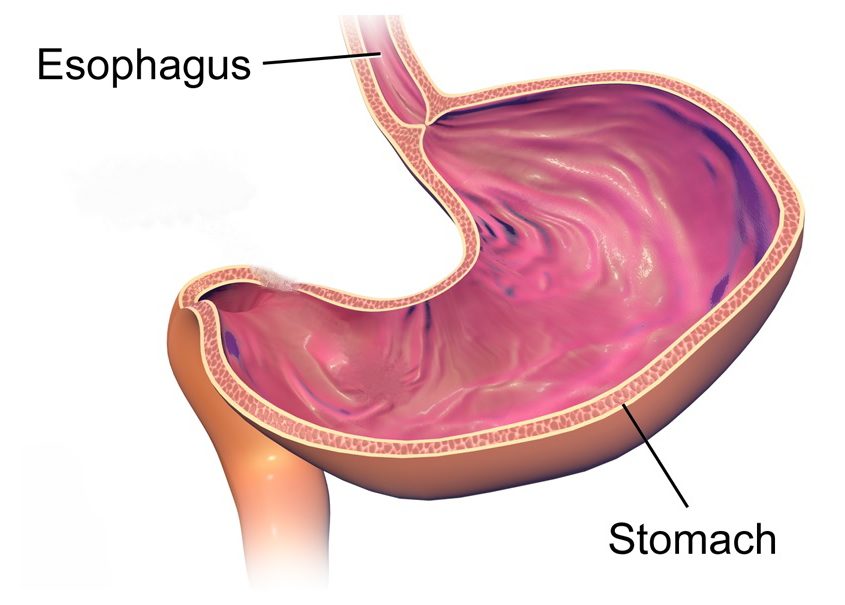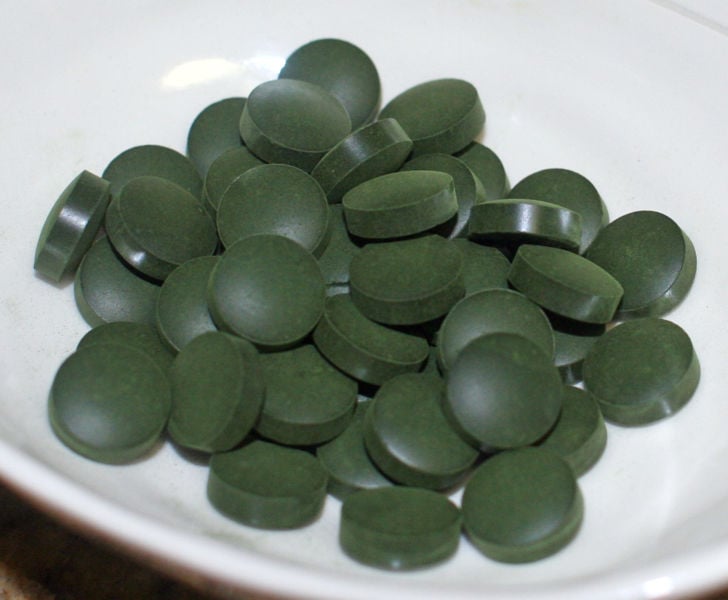.
ACID REFLUX, GERD, HEARTBURN
Written by Slawomir (“Swavak”) Gromadzki, MPH

Although the terms heartburn, acid reflux, and GERD (gastroesophageal reflux disease) are often used interchangeably there are some differences between these conditions:
Acid reflux is a pain in the oesophagus area defined as heartburn and it is caused by the backward flow of stomach acid into the oesophagus. Heartburn occurs in the oesophagus and involves mild to severe pain in the chest which is often mistaken for heart pain due to the same location. The lining of your oesophagus is much more delicate than that of the stomach. Therefore, whenever some acid in the oesophagus causes a burning sensation in your chest. The pain can feel sharp, burning, or like a tightening sensation.
GERD (gastroesophageal reflux disease) is the chronic or frequent acid reflux (causing heartburn), more severe form of acid reflux.
Heartburn is just a symptom of acid reflux and GERD.
POSSIBLE CAUSES
Low Stomach Acid (Hypochlorhydria). The media and drug industry have brainwashed us with the idea that acid reflux is caused by high stomach acid levels. The truth is that insufficient stomach acid leads to increase in intra-abdominal pressure (IAP) that imposes pressure on the lower oesophageal sphincter (LES). As a result the sphincter opens allowing small amount of stomach acid get inside oesophagus causing burning pain (heartburn, acid reflux) because unlike stomach oesophagus is not protected from acid.
The same problem takes place when contents of your stomach start to ferment due to low acid levels which leads to inability to digest proteins. It creates gas, which has to be released and imposes pressure on the lower oesophageal sphincter (LES) opening it slightly and allowing that gas to travel up. Apart from the gas, a little bit of stomach acid also gets into the oesophagus triggering heartburn. Yes antacids work can help reduce the symptom by lowering stomach acid but at the same time they exacerbate the root cause of the problem which is deficiency of stomach acid which causes indigestion and bloating thus leading to heartburn.

Hiatal hernia is a frequent cause of acid reflux. Diaphragm helps separate the stomach from the chest and in hiatal hernia the upper part of the stomach protrudes above the diaphragm, allowing acid to escape.
Magnesium deficiency can lead to improper functioning of the sphincter that prevents stomach acid from entering oesophagus.
In pregnancy the foetus can put extra pressure on the oesophageal valve, causing the release of acid.
Overweight put extra pressure on the valves and sphincter that allow release of acid.
Acidic foods: meat products, dairy, coffee, cola, chocolate, sugar, refined products, etc.
Large meals and snacking close to bedtime. Overloaded stomach increases pressure on the diaphragm, causing acid to travel upward.
Smoking impairs muscle reflexes and increases production of acid.
Medications, including ibuprofen, aspirin, etc. can cause acid reflux.
Helicobacter pylori, which is very common today cause of stomach ulcers contributes to heartburn.
Excessive exercise after meals can cause acid reflux by putting extra pressure in the abdominal cavity.
Inflammations cause tissue damage in the oesophagus.
TREATMENT
The three main types of medicines to treat acid reflux symptoms are antacids, proton pump inhibitors and histamine type 2 receptor antagonists. Continued use of these drugs — such as Nexium, Pepcid, Zantac, Prevacid, Prilosec and others causes harmful side effects including serious vitamin B12, calcium and magnesium deficiency. The same drugs can also contribute to anaemia, fatigue poor digestion, irritable bowel syndrome, depression and other problems.
REMEDIES
– Address Low Stomach Acid (Hypochlorhydria) >
– Try supplements that contain HCL with Pepsin but take it only when you consume protein meals (meat, dairy, fish, pulses, etc). Some people need one capsule; others may need to take more.
– Betaine hydrochloride (Betaine HCl), usually derived from beets, is an amino acid and supplement for helping food to be fully processed in the stomach for optimum nutritional benefits. Betaine HCl promotes healthy stomach acidity, gastric function and the digestion of protein as it activates pepsin used to break down proteins into amino acids. Betaine hydrochloride helps absorb vitamins – increasing their bioavailability. Betaine also helps regulate homocysteine levels as it is used to convert homocysteine in the blood to methionine. Elevated homocysteine levels, which increase with age, are linked to heart issues and blood clots. In the body betaine can be created by choline in combination with the amino acid glycine. Just like some B vitamins, including folate and vitamin B12, betaine is considered to be a methyl donor which aids in detoxification and liver function. Recommended daily dose: 650 – 2500 milligrams. Wheat bran/wheat germ is the single highest source of naturally occurring betaine. Also quinoa, beets, and spinach are very good sources.
– Try to relax and learn to control stress as there is a direct correlation between stress and indigestion due to the fact that brain is very closely connected to the gastro-intestinal tract. In order to calm down nervous system try to take 400mg of Magnesium citrate before breakfast and before bed, B complex (50-100mg) after breakfast, 30-50 mg of Zinc citrate after meal, and drink 2-3 times a day herbal teas such as Lemon balm, Chamomile, Tulsi (Holy basil), etc.
– Centaurium (Centaury) > tincture. This is the most important remedy and it helped many people suffering from acid reflux. The following short testimonial by a person with hiatus hernia is an example of effectiveness of this herb: “This is the best medicine ever for stomach trouble. Mine is hiatus hernia and I have taken centaurium for years. Through taking it I feel normal every day and it helps me to digest. Before it I felt very ill. It keeps me going and I live a normal life because of it.”
– Magnesium is a calming and relaxing mineral, and it helps relax your LES muscle so it closes properly. A 2014 study concluded that medications containing magnesium improved GERD. A separate study confirmed that magnesium helps heal oesophagus and reduce heartburn. Try taking magnesium citrate to relax stomach muscle and intestines: 2 times a day 200-400mg 1 hour before meal and 1-2 hours before bed. At the same time use magnesium chloride as this form of magnesium is also well-absorbed and is even more likely to help heartburn. Take about 300-500 mg once or twice a day. Magnesium chloride should be better for heartburn than other forms because it contains chloride which will increase hydrochloric acid content which in turn will lower the pressure inside stomach helping to prevent sphincter damage as properly functioning sphincter will prevent acid from getting into oesophagus. The best way to increase magnesium levels is by using transdermal magnesium chloride oil as it is applied directly to the skin and adheres quickly to the bloodstream where it is then transported throughout the body, including lower theosophical sphincter. Not only will this help prevent acid reflux symptoms, but will also produce hundreds of other health benefits including relaxing other muscles and nervous system. Read more about MAGNESIUM CHLORIDE >
Make Magnesium Chloride Solution to Consume Orally: Mix about 50 grams (about 3 tablespoons) of pure Magnesium Chloride flakes with about 1 litre of filtered (or even better distilled) water or 100% juice (for those who need to improve taste) and store it in an airtight glass container. About 50 ml or 1.5 ounces of the solution makes one supplemental dose of magnesium chloride. One litre of the solution should have about 20 shots. To mix flakes with water try to use wooden or plastic spoon instead of metal one as magnesium chloride reacts with metals and therefore may store some of it in a glass container. An adult person may ingest 1 shot (dose) in the morning just before meal and one in the evening. In addition, the same water solution (not juice) can be used transdermally. In this case you need to massage some of this solution into the skin behind knees, armpits, groins and sole of the feet in the morning and before bad.
– Charcoal tablets or powder might be very helpful too (requires drinking more water in between meals).

– Chlorella (requires drinking more water in between meals). It is very effective in lowering acidity, detoxifying the body, boosting energy and regenerating damaged tissue.

– Good probiotic formula to increase number of beneficial bacteria in your intestines.
– Slippery Elm is another very effective remedy. It protects the mucus membranes of the oesophagus against inflammation caused by acid. In addition slippery elm also reduces acidity by stimulating mucus production.
– Formulas with variety of digestive enzymes will improve digestion. Fresh raw sprouts are 30 times higher in digestive enzymes than other healthy foods!
– Ginger has been used for many people as very effective digestive aid and natural remedy for digestive problems, weak immunity or nausea. Researchers also discovered that three capsules of ginger with meals can actually help people with dyspepsia and abnormally delayed gastric emptying to release stomach contents into the small intestines much faster. Ginger also helps get read of other gastrointestinal problems. In addition it relaxes the smooth muscle in the gastro-intestinal tract thus preventing constipation.
– Drink 1-2 glasses of fresh and raw vegetable juices (carrot, beetroot, kale, etc.) 2-3 times a day before meals.
A gluten free diet could be a useful approach in reducing GERD symptoms in adult celiac patients >
Curcumin inhibits esophageal activation in response to acid >
LIFESTYLE AND DIET RECOMMENDATIONS
– Please read carefully and implement principles included in the Health Recovery Plan >
– Go on plant-based unrefined 50-85% raw diet. Hallelujah diet is the best example.
– Avoid: overeating, caffeine (coffee, cola, black and green teas, etc.), and decaffeinated coffee, chocolate (extremely acidic), alcohol, meat, dairy, sugar, glucose, fructose syrup, refined foods, white flour products, white rice, hot spices, antibiotics, refined salt.
– With your meals use mild spices such as marjoram, fennel, cumin, oregano, etc. to improve digestion
– Drink 3 times a day about 3 glasses of water 1 hour before meals or 2 hours after meals. Try to drink only distilled water. Never drink water or other liquids with meals (except ½ glass of juice).
– Avoid constipation >
– If possible avoid drugs (nitrates, sedatives, theophylline in black and green tea, calcium channel blockers) that can make reflux worse as they may decrease the pressure of the lower oesophageal sphincter. Even peppermint tea or peppermint oil can have similar effect and should be avoided.
– If the symptoms are stronger at night, elevate the head of your bed by six to eight inches (to prevent stomach acid from refluxing while you’re lying down).

– Use an acid reflux wedge pillow as it will relieve symptoms by elevating the upper body.
– Learn to control stress.
– Fast walking every day.
– Don’t eat within three hours of bedtime.
– Don’t lie down after meals. Light physical activity such as walking is most beneficial after meals.
– Avoid acid-suppressive drugs as they have significant side effects and cause rebound increase in acid production.
– Consume more alkaline foods and avoid or reduce acidic products:

Increase fibre intake.
Increase probiotic bacteria in your gut with probiotic-rich foods and supplements.
Avoid acidic foods: Meat products, dairy, coffee, cola, chocolate, sugar, refined products, etc.
Avoid: Alcohol, carbonated beverages, sugary drinks or energy drinks, artificial sweeteners, spicy foods, and processed foods.
Avoid fried foods especially with animal fats or commercial oils, vegetable oils, including canola oil.
Use only healthy fats like raw coconut or cold-pressed olive oil and flax oil.
Consume foods that help improve acid reflux: fresh vegetable juices, fresh organic (if possible) vegetable salads (especially leafy greens, parsley, beets, carrots, squash, artichoke, asparagus and cucumbers).
Don’t overeat. Eat smaller meals to allow foods to properly digest, as large meals and overeating put extra pressure on the sphincter.
Give up smoking.
Eat slowly and chew foods more thoroughly.
If you are overweight lose weight.
– Read HEALTH RECOVERY PLAN and implement principles for at least one week.
– If combine the use of described here remedies and principles with sincere fervent prayers you will experience great results very quickly.
– If you believe in existence of God don’t forget about daily fervent prayers and reading or listening to a good spiritual literature (such as the Bible, Desire of Ages > and “Ministry of Healing” > by Ellen G White available online free of charge) which presents God as loving, healing, forgiving, carrying and saving from eternal death Person. All this will greatly increase the effectiveness of your improved diet and lifestyle: “Rejoice always, pray continually, give thanks in all circumstances; for this is God’s will for you in Christ Jesus” (1Thessalonians 5:16-18, NIV); “Do not be anxious about anything, but in every situation, by prayer and petition, with thanksgiving, present your requests to God. And the peace of God, which transcends all understanding, will guard your hearts and your minds in Christ Jesus” (Philippians 4:6-7, NIV). Because from my own experience I know and remember how difficult it was, in my case, to change my eating habits and give up on junk food and stimulants using my own pathetic at that time will power, I recommend to you reading or listening to a book “Steps to Christ” > and Great Controversy > by Ellen White. If you carefully study all the information presented there and follow the steps, you will not only become victorious but will actually experience an inward transformation which will enable you to enjoy your new lifestyle (including diet and physical activity).
Share this article!
Any information or product suggested on this website is not intended to diagnose, treat, cure or prevent any medical condition. Never disregard medical advice or delay in seeking it because of something you have read on this website. Consult your primary healthcare physician before using any supplements or making any changes to your regime.
© 2016 Slawomir Gromadzki – All Rights Reserved
